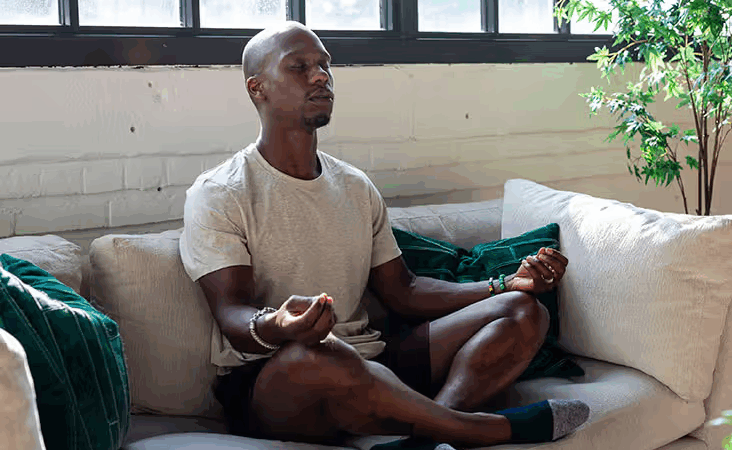Hypnotherapy for Anxiety: Unlocking the Mind’s Potential for Calm

Anxiety is a pervasive issue affecting countless individuals across the globe, often leading to debilitating effects on daily life and overall well-being. b has emerged as a valuable tool in the arsenal against this mental health challenge. By harnessing the power of the subconscious mind, hypnotherapy offers a unique pathway to understanding and alleviating the roots of anxiety.
What is Hypnotherapy?
Hypnotherapy is a therapeutic technique that utilizes guided hypnosis to create a state of deep relaxation and focused attention. In this altered state of consciousness, individuals become more open to positive suggestions and are better able to explore and reframe their thoughts and behaviors. Unlike the dramatic portrayals in popular media, hypnotherapy is a collaborative and evidence-based practice aimed at fostering personal growth and healing.
How Hypnotherapy Helps Alleviate Anxiety
Accessing the Subconscious Mind: Anxiety often stems from deep-seated fears and unresolved issues that reside in the subconscious. Hypnotherapy allows individuals to tap into these hidden areas, bringing them to the surface where they can be addressed and transformed.
Changing Negative Thought Patterns: Through positive suggestions and cognitive restructuring during hypnosis, hypnotherapy helps rewire the brain’s response to stressors. This can lead to a reduction in negative thinking and an increase in positive coping mechanisms.
Enhancing Relaxation Responses: Hypnotherapy techniques promote relaxation, which can counteract the body’s stress response. Regular sessions can train the mind to enter a state of calm more easily, even in challenging situations.
Empowering Personal Control: By fostering a sense of mastery over one’s thoughts and emotions, hypnotherapy empowers individuals to take active steps in managing their anxiety. This sense of control is crucial in mitigating feelings of helplessness that often accompany anxiety disorders.
The Hypnotherapy Process for Anxiety
A typical hypnotherapy session for anxiety involves several key stages:
Initial Consultation: The therapist gathers information about the individual’s anxiety triggers, history, and specific goals. This personalized approach ensures that the hypnotherapy is tailored to the person’s unique needs.
Induction Phase: The therapist guides the individual into a hypnotic state using relaxation techniques such as deep breathing, progressive muscle relaxation, or visualization.
Therapeutic Intervention: While in the hypnotic state, the therapist introduces positive affirmations, visualizations, and strategies designed to address the root causes of anxiety and promote mental resilience.
Termination and Reintegration: The therapist gently brings the individual out of the hypnotic state, ensuring they feel refreshed and grounded. Post-session discussions may follow to reinforce the insights gained during hypnosis.
Benefits of Hypnotherapy for Anxiety
Non-Invasive and Drug-Free: Hypnotherapy offers a natural alternative to medication, making it an appealing option for those seeking non-pharmacological treatments.
Personalized Treatment: Each session is customized to address the individual’s specific anxiety triggers and goals, enhancing the effectiveness of the therapy.
Long-Lasting Results: By targeting the subconscious mind, hypnotherapy can lead to enduring changes in thought patterns and behaviors, providing lasting relief from anxiety.
Complementary to Other Therapies: Hypnotherapy can be integrated with traditional treatments such as cognitive-behavioral therapy (CBT) or medication, offering a comprehensive approach to managing anxiety.
Scientific Support and Effectiveness
Research on hypnotherapy for anxiety indicates promising outcomes. Studies have shown that hypnotherapy can significantly reduce anxiety levels and improve overall mental health. A study published in the Journal of Clinical Psychology found that participants who underwent hypnotherapy reported lower anxiety scores compared to those who received standard treatment alone. Additionally, meta-analyses suggest that hypnotherapy is effective in treating various anxiety disorders, including generalized anxiety disorder (GAD), panic disorder, and social anxiety.
Finding the Right Hypnotherapist
Choosing a qualified and experienced hypnotherapist is crucial for achieving optimal results. Prospective clients should look for practitioners who are certified by reputable hypnotherapy organizations and have a strong background in mental health. Personal recommendations, reviews, and initial consultations can help in selecting a therapist who aligns with one’s comfort and therapeutic goals.
Integrating Hypnotherapy into a Holistic Treatment Plan
For those battling anxiety, integrating hypnotherapy into a broader treatment plan can enhance overall effectiveness. Combining hypnotherapy with lifestyle changes such as regular exercise, healthy eating, mindfulness meditation, and adequate sleep can provide a holistic approach to managing anxiety. Additionally, support from friends, family, and mental health professionals can bolster the benefits of hypnotherapy.
Hypnotherapy for Anxiety offers a powerful and nuanced approach to understanding and mitigating the complexities of anxiety disorders. By accessing the subconscious mind, reshaping negative thought patterns, and fostering deep relaxation, hypnotherapy can provide meaningful and lasting relief. As research continues to validate its efficacy, hypnotherapy stands as a promising option for those seeking comprehensive and personalized strategies to achieve mental tranquility.






